Human Rights Abuse History
(Pre-June 2009 Elections)
Since the 1979 Islamic Revolution, the Iranian regime has imposed a rigid, fundamentalist form of Islamic law on its people and solidified its hold on power by denying Iranians their basic rights and individual liberties. The Iranian regime's gross human rights violations have targeted a wide array of ethnic and social groups including women, homosexuals, students, Bahais, Christians, Jews, journalists and political dissenters. While 100 political prisoners were executed under the rule of the Shah from 1971-1979, more than 7,900 were executed under Ayatollah Khomeini from 1981-1985 alone. Even more shocking, a 1988 fatwa by Ayatollah Khomeini led to the execution of as many as 30,000 political prisoners.
The Islamic Republic of Iran has a lengthy history of committing human rights abuses that spans three decades prior to the atrocities seen in the aftermath of the June 2009 elections. This timeline presents some of the most significant and shocking events in that time period.
Execution of former PM of Iran April 7, 1979
-
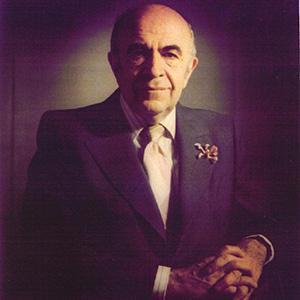
Amir-Abbas Hoveida, former Prime Minister of Iran, is executed by Iranian revolutionaries for charges including:
- "Corruption on earth."
- "Revolt against the security and freedom of the country by forming cabinets handpicked by the United States of America and Britain to safeguard colonialist interests."
- "Expanding the influence of imperialists, America and her European allies in Iran through the destruction of local resources and conversion of Iran into a consumer market, for foreign goods."
- "Direct participation in spy activities in favour of the West and Zionism."
- "Spreading cultural and moral corruption, participation in the strengthening of the colonialist foothold and creating a capitulatory system of justice for American citizens." (See p. 71-72 and Appendix A no. 80 for all charges: Amnesty International. "Law And Human Rights in The Islamic Republic of Iran," February 1980)
Post-Revolution Executions February 1979 – August 1979
-
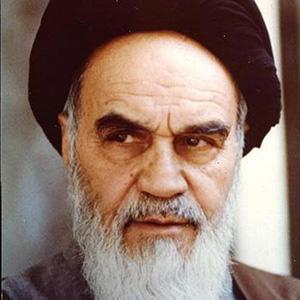
- Khomeini's government commits egregious human rights violations in the wake of the Revolution, specifically targeting former supporters and officials of the Shah's regime. Summary executions and flogging were frequently invoked. Amnesty International documents 438 executions of former Shah Officials in this time period. (See Appendix A)
- An Amnesty International report notes, "Charges brought against defendants were of a somewhat hybrid character. Some of them incriminate a certain type of political conduct, for example ‘being a Minister in the former government,' or ‘assigning the underground resources of oil, copper, and uranium to foreigners'; others charge a criminal responsibility for inhumane conduct such as torture and murder of dissenters and demonstrators. More recent cases may charge ‘counter-revolutionary activities.'"
Regime Executions January 1980- June 1985
-
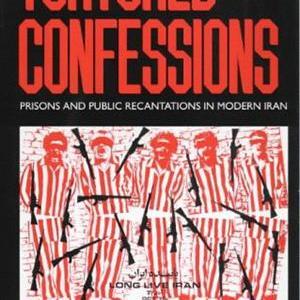
- New series of executions soon followed.
- January 1980-June 1981: At least 906 government opponents executed. (See Shaul Bakhash, The Reign of the Ayatollahs, p.111)
- June 1981-June 1985: Another 8,000+ executed. (See Ervand Abrahamian, Tortured Confessions, p.135-6, 167, 169)
Iran Hostage Crisis November 4, 1979 – January 20, 1981
-
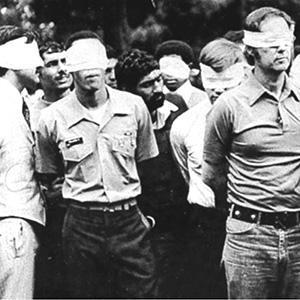
- Islamist students and militants take over the American Embassy in Tehran, holding 66 Americans hostage. Khomeini supports the hostage taking.
- 52 of the hostages were held captive for 444 days, until Ronald Reagan's inauguration as President of the United States.
Persecution of Baha'is 1979-Present
-
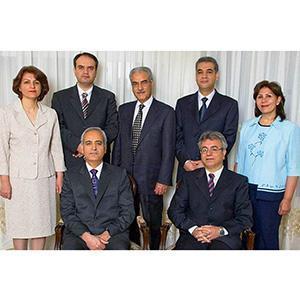
- The Islamic Republic has systematically persecuted the Baha'i for their "heretical" religious views.
- According to the official website of the Baha'is of the United States, since 1978 221 Iranian Baha'is have been executed, "disappeared," or killed for their beliefs.
- Thousands more are wrongfully imprisoned, fired from government posts, barred from higher education, or have faced personal property confiscation and destruction.
Iran-Iraq War 1980-1988
-
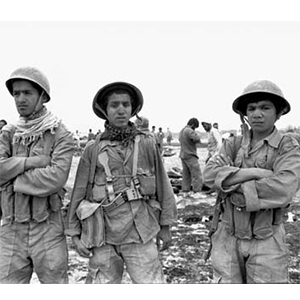
- Iran uses child and teenage members of its Basij militia to clear minefields by having them run in front of the soldiers' lines during Iran's war with Iraq.
- The Iranian daily Ettelaat notes, "Before entering the minefields, the children [now] wrap themselves in blankets and they roll on the ground, so that their body parts stay together after the explosion of the mines and one can carry them to the graves."
U.S. Marine Barracks Bombing October 23, 1983
-
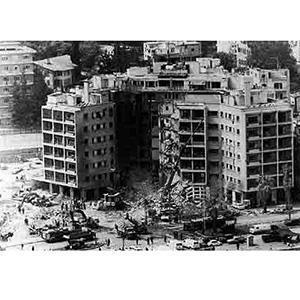
- The U.S. Marine headquarters in Beirut is destroyed in a suicide attack by Iran's terrorist surrogates, resulting in the death of 241 off-duty American servicemen.
Banning Free Speech (1985)
-
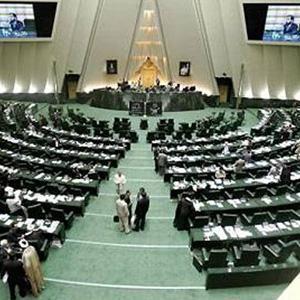
- The Iranian parliament passes a press law prohibiting "discourse harmful to the principles of Islam" and "public interest," effectively stifling free speech.
Mass Execution of Political Prisoners (1988)
-
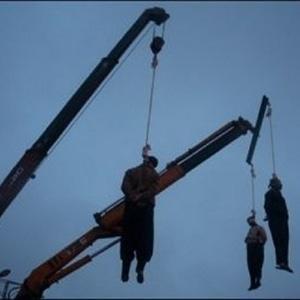
- Ayatollah Khomeini issues a fatwa in July 1988 to set up "Special Commissions with instructions to execute members of People's Mojahedin Organization of Iran [PMOI/MEK] as moharebs (those who war against God) and leftists as mortads (apostates from Islam)." While thefatwa primarily targeted the PMOI/MEK (a leftist opposition group), thousands of supporters of the Fedaian (socialist) and Tudeh (communist) parties were also executed. (See Ervand Abrahamian, Tortured Confessions, p. 209-228)
- While Amnesty International estimates the total number of deaths between 4,500 and 5,000, the memoirs of Grand Ayatollah Hossein-Ali Montazeri (one of the founders of the Islamic Republic) note that as many as 30,000 political prisoners, including children as young as 13, were executed: "Children as young as 13 were hanged from cranes, six at a time, in a barbaric two-month purge of Iran's prisons on the direct orders of Ayatollah Khomeini… Because of the large numbers of necks to be broken, prisoners were loaded onto forklift trucks in groups of six and hanged from cranes in half-hourly intervals."
Salman Rushdie Fatwa February 14, 1989
-

- Khomeini issues a fatwa calling for the death of Salman Rushdie, Indian-born British Muslim author of The Satanic Verses, which Khomeini proclaims as "blasphemous against Islam." The fatwa "signal[ed] the beginning of an assassination campaign against individuals associated with Rushdie's book as well as other ‘enemies of the revolution.'"
1990s The Chain Murders
-

- Throughout the 1990s, rogue elements of the regime orchestrate a series of disappearances and murders of prominent intellectuals and dissidents.
- For example, in December 1998 three dissident writers and one opposition politician are murdered under mysterious circumstances.
- Two journalists are responsible for exposing the truth: Akbar Ganji (jailed in Evin Prison from 2001-2006) andSaeed Hajjarian (shot in the face—though he survived—in March 2000).
Reformist Newspaper Closure (July 1999)
-
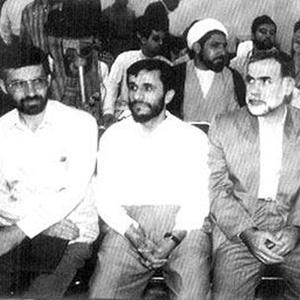
- After a government ban on the reformist newspaper Salam, riot police storm a hostel where students had gathered to protest the action. Three people are killed and at least 200 injured.
Spring 2007 Dress Code Crackdown
-
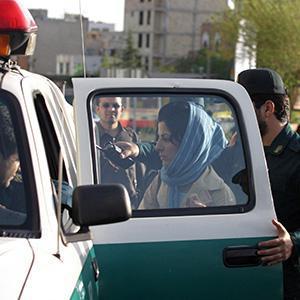
- The Iranian government launches a crackdown on those accused of violating state-enforced Islamic dress codes, specifically targeting women. Taxi drivers are encouraged to avoid carrying passengers who violate the dress code.
- 300 women are arrested in Tehran in the spring of 2007 alone
Iran: The Last Executioner of Children (July 2007)
-
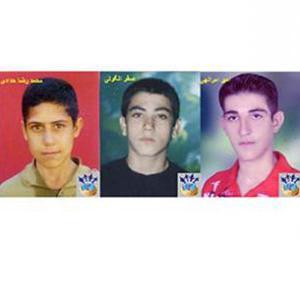
- Amnesty International issues a comprehensive 46 page report titled "Iran: The Last Executioner of Children," noting that Iran had executed more children between 1990 and 2005 than any other state.
- There have been at least 23 executions of offenders under the age of 18 in Iran since 1990.
December 2008 Closure of Human Rights Center
-

- Government forces shut down the Center for the Defenders of Human Rights, a legal defense organization led by 2003 Nobel Peace Prize winner Shirin Ebadi.
Further Reading
Reports
- "Child Executions in Iran" (Amnesty International)
- "Law And Human Rights in The Islamic Republic of Iran: A Report Covering the Seven Month Period Following the Revolution of February 1979" (Amnesty International, 1980)
- "Like the Dead in their Coffins: Torture, Dissent and the Crushing of Dissent in Iran" (Human Rights Watch, 2004)
- "You Can Detain Anyone for Anything: Iran's Broadening Clampdown on Independent Activism" (Human Rights Watch, 2008)
- "Iran: Events of 2008" (Human Rights Watch, 2009)
- "Assessment of the Human Rights Situation in Iran" (International Federation for Human Rights, 2004)
- "Deadly Fatwa: Iran's 1988 Prison Massacre" (Iran Human Rights Documentation Center, 2009)
- "Speaking for the Dead: Survivor Accounts of Iran's 1988 Massacre" (Iran Human Rights Documentation Center, 2010)
- "Treatment of the Bahais: A Test of Human Rights in Iran" (Washington Institute for Near East Policy, 2008)